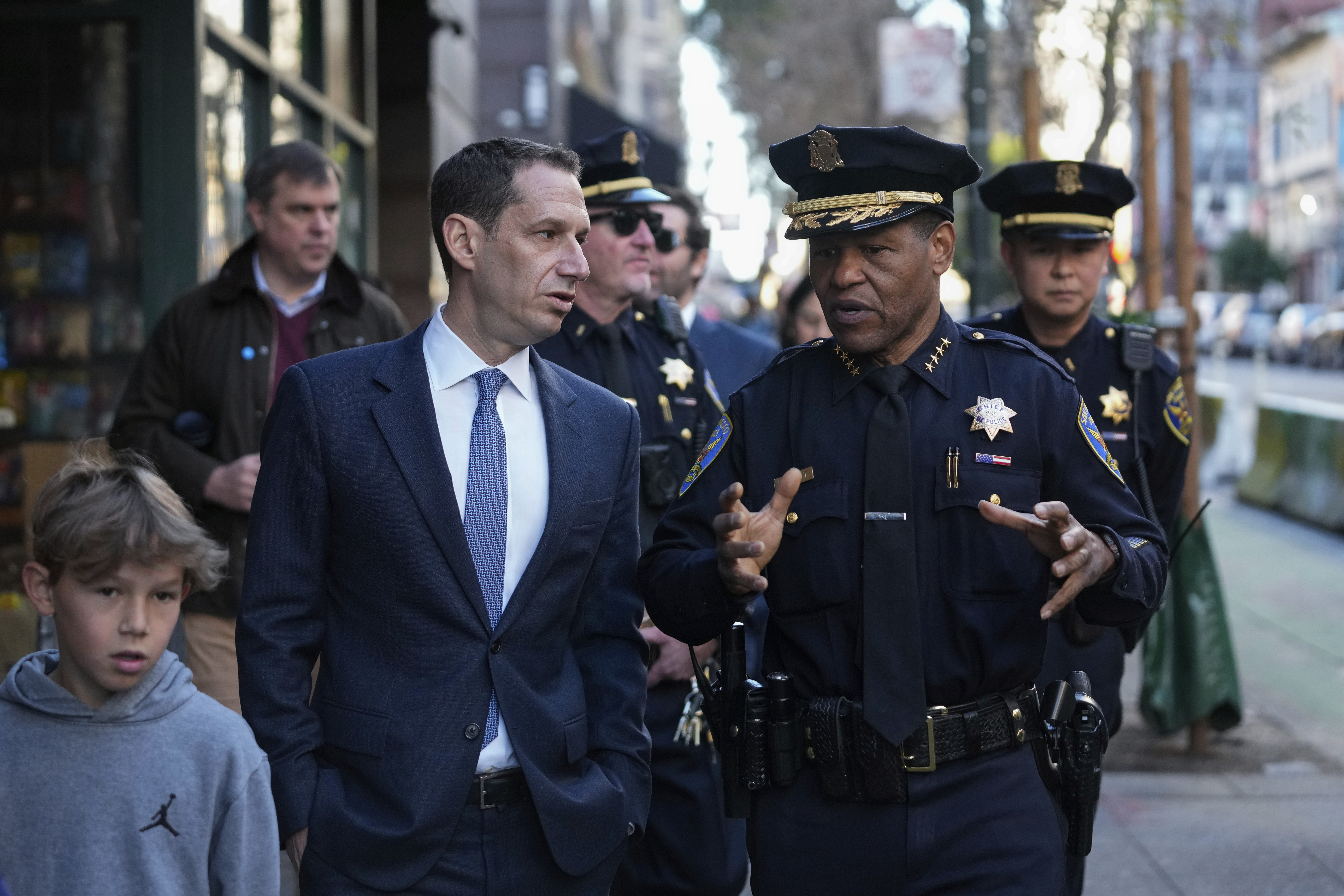Top 10 Essential Memes You Need To Understand Russians

Each big topic last year soon turned into a meme, and each meme tells a story about modern Russians
Russian memes are in a peculiar place right now. Most of them have a short lifespan, and once they gain popularity and start appearing in ads, they lose relevance even faster. However, memes have become an essential part of discussing any news. When things are constantly changing and new events capture public attention daily, memes often give a better idea of the situation than traditional news articles. And they are definitely more memorable.
Moreover, Russian memes are thriving in other countries. Just look at ‘Sigma Boy’ – a song by two Russian middle school girls that took TikTok by storm and even made an impact in the European Parliament.
So, when reflecting on last year, people in Russia are likely to remember not the headlines, but the memes. To grasp the reasons behind the laughter, frustration, and contemplation of Russians, one only needs to take a glance at these memes.
Sigma boy
A Russian military choir singing a song about “the real sigma boy,” who is “strong and brave” and “will soon return home with victory,” while images of combat operations from the war front play in the background. This is just the latest iteration of the viral song “Sigma Boy,” whose virality has even raised concerns in the West.
The song, released in October by 11‑year‑old Sveta Chertishcheva and 12‑year‑old Masha Yankovskaya, was initially expected to be a hit. Both girls are well‑known bloggers, and Sveta’s father is a successful producer. But they probably didn’t foresee such explosive hype – the song went viral on TikTok, and even reached top 10 on the Billboard, and has already amassed over 87 million views on YouTube.
Ultimately, concerns were raised in the European Parliament that the song “communicates patriarchal and pro‑Russian worldviews” and is “a viral Russian trope.” Meanwhile, Ukraine’s National Security and Defense Council’s Center for Countering Disinformation accused the song “Sigma Boy” of being “part of a wider information warfare” and an element of Russia’s “soft power.”
Skufs and Altushkas
One of the major Russian memes of the year, the term ‘skuf’ is used to refer to out of shape middle-aged men with a limited worldview, and no sense of style or life ambitions. Typically, skufs have ordinary jobs and spend their free time drinking beer, watching soccer, or fishing.
Initially, the term was rather derogatory, but over time, people began to see certain positive aspects in this lifestyle – like tranquility, stability, and not being dependent on the opinion of others. This gave rise to a joke that the government will pair up ‘skufs’ with ‘altushkas’ (or ‘alties’) – young women who embrace alternative aesthetics, and that skufs should get their altushkas through Gosuslugi – Russia’s online government portal of state and municipal services.
The meme has inspired local authors and game designers to create games centered around ‘skufs’who receive their government benefits in the form of getting their own ‘altushka’. One of these games has been capturing players’ hearts since last spring, while another is set to launch soon.
 ‘An alt girl for skoof’ by Terletski Games
© Terletski Games
‘An alt girl for skoof’ by Terletski Games
© Terletski Games
The discussion around the pros and cons of this program even inspired some libertarian memes:

The meme has become so popular that it’s a sort of litmus test for knowing Russian internet culture. If someone knows what a ‘skuf’ is and where to find their ‘altushka’, they’re up to date on modern internet culture.
“Buhwhadabout”
Late Millennials and early Zoomers have suddenly realized that they too are gradually aging. And like every generation before them, they’ve started making fun of the younger kids. However, they did it creatively, mocking not just the schoolkids’ obsession with gadgets but also their penchant for drama, unhealthy vaping habits, and the tendency to start every sentence with “anichyetochto” – a meaningless tongue twister that can be roughly translated as “buhwhadabout.”
As usual, the kids paid no attention to the fact that the adults were making fun of them and didn’t care to change their habits.
Kicksharing
Electric scooters are quietly taking over the world. In the right hands, they can be an excellent option for short trips or leisurely rides, but in the wrong hands, they can be quite dangerous. Last year in Russia, we saw both sides of the coin.
While scooter-sharing services were already available in Russia, their popularity skyrocketed this year as people embraced e-scooter rental. In Moscow, a city of 13 million people, the number of e-scooter users surged to four million. Some enthusiasts even customized their scooters.
However, it turned out that without strict regulations, kicksharing could lead to major problems in large cities. Reckless riders sped down crowded sidewalks, rode scooters while drunk, and climbed onto one scooter in groups of two or even three. All this has resulted in hundreds of accidents and serious injuries, and thousands of disgruntled pedestrians and drivers.
As a result, there was a growing demand to ban kicksharing. Instead of shutting down the e-scooter rental services, however, authorities opted for stricter rental rules. The industry quickly complied, and by the end of summer, reckless users faced fines and bans. It seems that next season, kicksharing in Russia will be considerably safer, though many remain wary.
Overall, kicksharing has demonstrated that Russian cities are steadily moving towards transportation modernization. Still, society isn’t quite ready for complete self-regulation – at least not on the roads.
Nikita Kologrivyy
Actor Nikita Kologrivyy had a challenging year. His popularity skyrocketed after the hit series “The Boy’s Word” (even though he was only a supporting actor in the series). This newfound fame was further fueled by sensational interviews and rumors that he would portray Vladimir Zhirinovsky in a biopic about the controversial politician.
However, it soon turned out that Kologrivyy was everywhere, and there was too much of him – in just one year, he appeared in 10 films and series.

The media enthusiastically discussed an incident in which he allegedly bit a waitress, and rumors spread that he’d be giving autographs at polling stations during the Russian presidential elections. The final straw came when he was controversially cast as poet Vladimir Mayakovsky in a play. This prompted some aggressive memes against him.

Pavel Durov’s adventures
Despite the fact that Pavel Durov has long left Russia, people still fondly remember the tech entrepreneur and creator of VKontakte and Telegram and even consider him “their Elon Musk” – largely due to his striking photos and lifestyle. Durov’s arrest in France this August sparked a flurry of reactions in Russia – some people joked about it, others were outraged, some restaurants removed croissants from their menus, and a group of developers even created a video game simulating an escape from a prison in France.
A short while before the incident, Durov revealed that he had once been a sperm donor, and as a result had over 100 children in different countries. While some rushed to find Durov’s genetic material, others speculated about the future of the Earth:

Kanye West in Moscow
Despite the fact that Russian music is becoming more popular, Russians still love Western singers. So when Kanye West briefly visited Moscow to celebrate his friend, fashion designer Gosha Rubchinskiy’s birthday, rumors quickly spread about a potential concert.
Some media outlets announced the concert five times. Each time, scammers sold tickets to non-existent shows. And each time, just hours later, it became clear that no concert was about to take place. Fans were left to imagine what it would be like to see Kanye in Moscow…
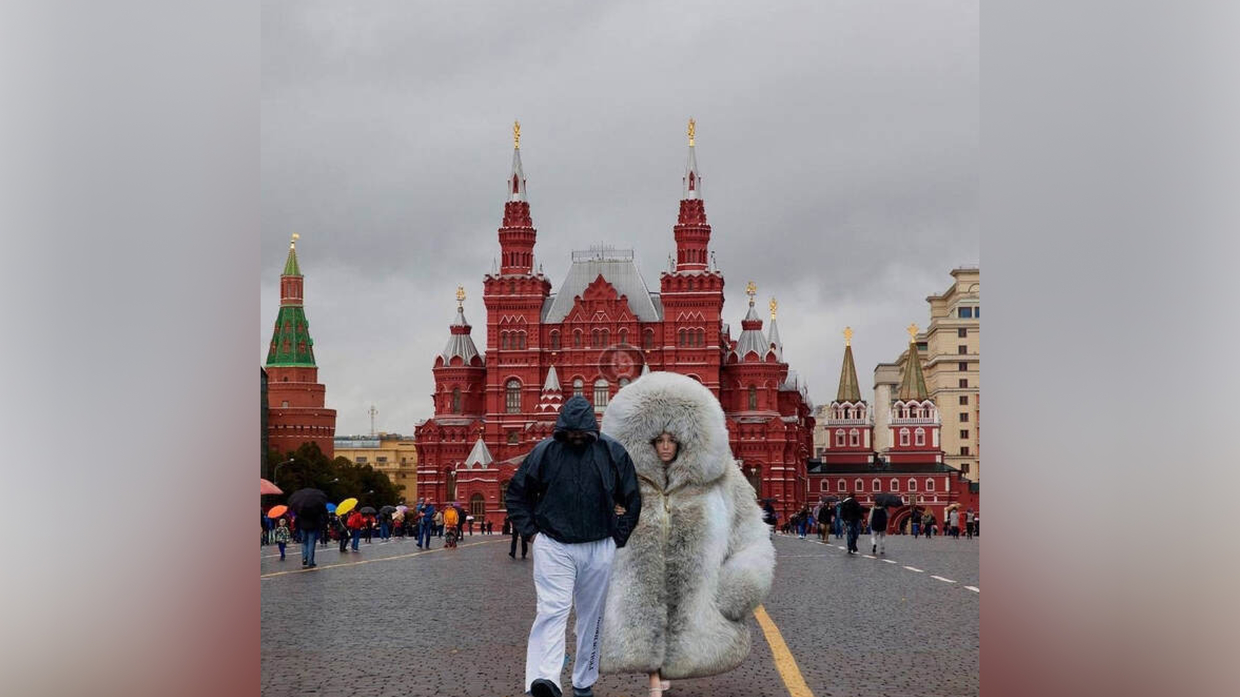
… and speculate on the reasons why he had left so quickly.
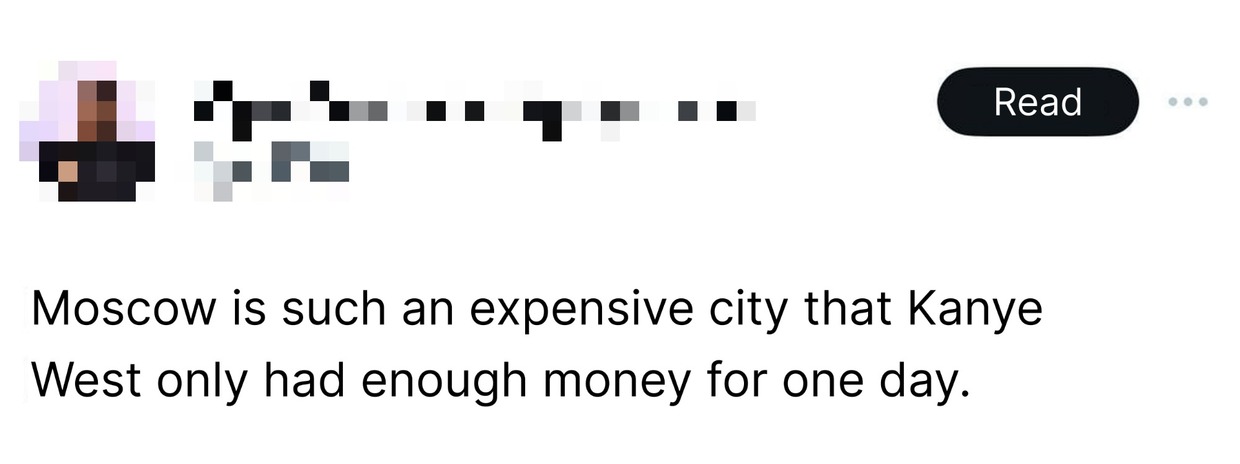
Our elephant
’Our Elephant’, ‘Elephanty’, ‘Based Elephant’ – these compliments have been actively handed out on Russian-speaking social networks since the end of 2023. In a short time, this title has been bestowed on a wide range of completely different people: entrepreneur Elon Musk, journalist Tucker Carlson, TikToker Danya Milokhin, and director Lars von Trier.
Despite its name, the ‘elephant’ meme isn’t connected to the animal world. Online, users might call someone ‘our elephant’ if their political stance aligns with their own views, or if they boldly express their opinions against the mainstream.
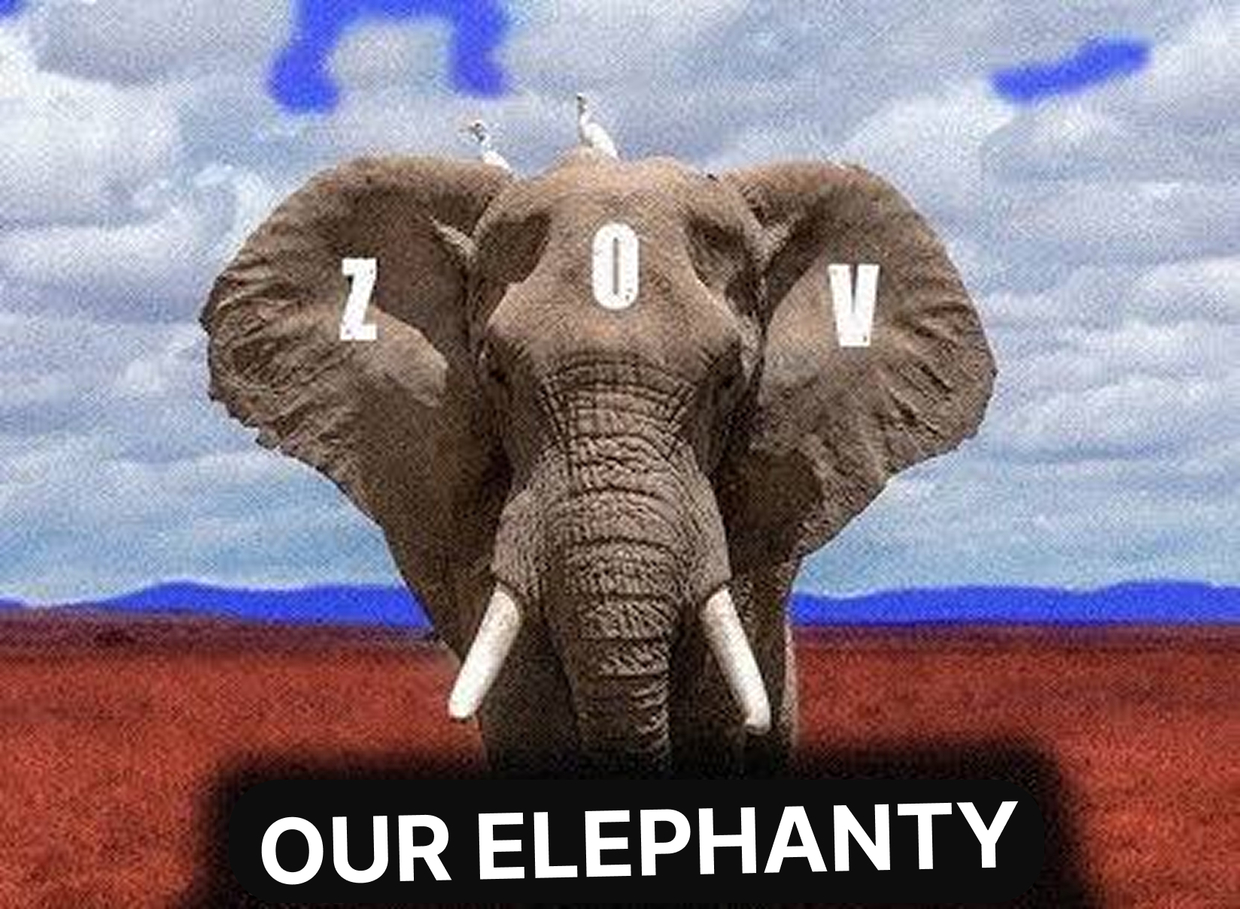
The word ‘elephant’ is often used to mean ‘cool.’ It is most commonly found in the lexicon of conservative-minded Russians, who typically use it to describe someone who supports Russia or generally holds traditional views on life.
For example, online users dubbed singer Dima Bilan ‘our elephant’ after his trip to Donbass, MMA fighter Conor McGregor – who was seen listening to the Russian national anthem while standing –entrepreneur Elon Musk, who, although not entirely sympathetic toward Moscow, frequently criticizes its opponents, and journalist Tucker Carlson, who interviewed Russian President Vladimir Putin. Carlson was even called our “Russo-American elephant.”
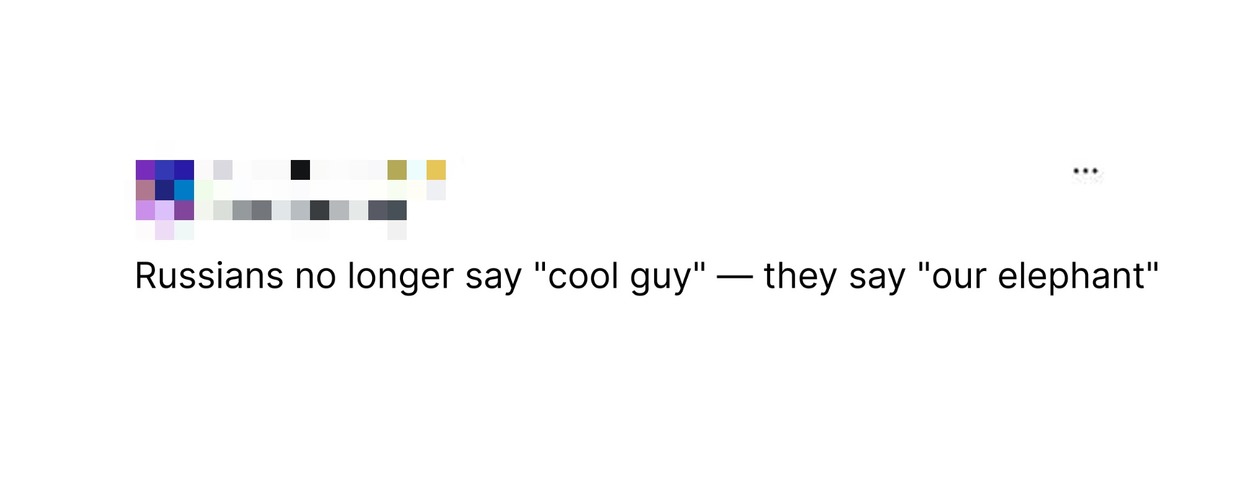
Tucker Carlson’s interviews
The fact that Russian President Vladimir Putin decided to talk to the American journalist didn’t generate much buzz in Russia. Of course, people were curious what Carlson would say about life in Moscow, but when the media began to follow his every move, the hype quickly faded.
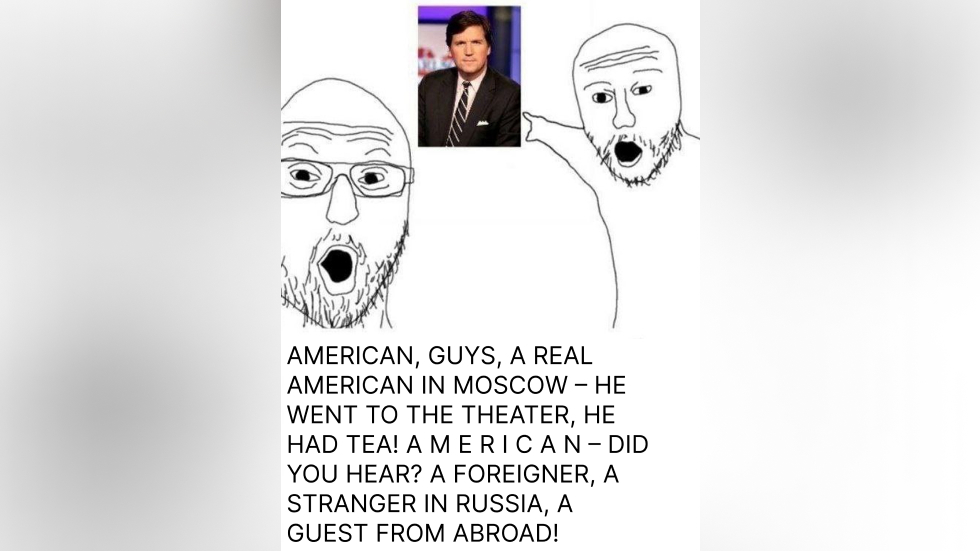
In Russia, no one expected anything unusual from this interview – it was clear that the Russian president would mainly repeat everything he has said since February 2022, but this time to a foreign audience. However, in the end, Russians too were intrigued – not so much by Putin’s answers as by his sudden interest in giving the American journalist an overview of Russia’s medieval history. Carlson’s bewildered expression on hearing this account left a stronger impression on Russians than the rest of the interview.

Later, Carlson interviewed controversial Dagestani blogger Hasbik, and Russian Foreign Minister Sergey Lavrov. These videos attracted less attention. But then, people noted a possible ulterior motive behind Carlson’s visits to Moscow.

US presidential elections
The 2024 Russian presidential elections were largely uneventful. The only memorable moment came from Communist candidate Nikolay Kharitonov’s campaign video, in which he proclaimed, “We’ve played around with capitalism – enough of that!” while defiantly clenching his fist. This reminded many people of Arthur’s clenched fist:

US elections are always memorable and spark interest in Russia. Many people joked that as the day of the US elections approached, everyone suddenly became an “expert” on American politics.
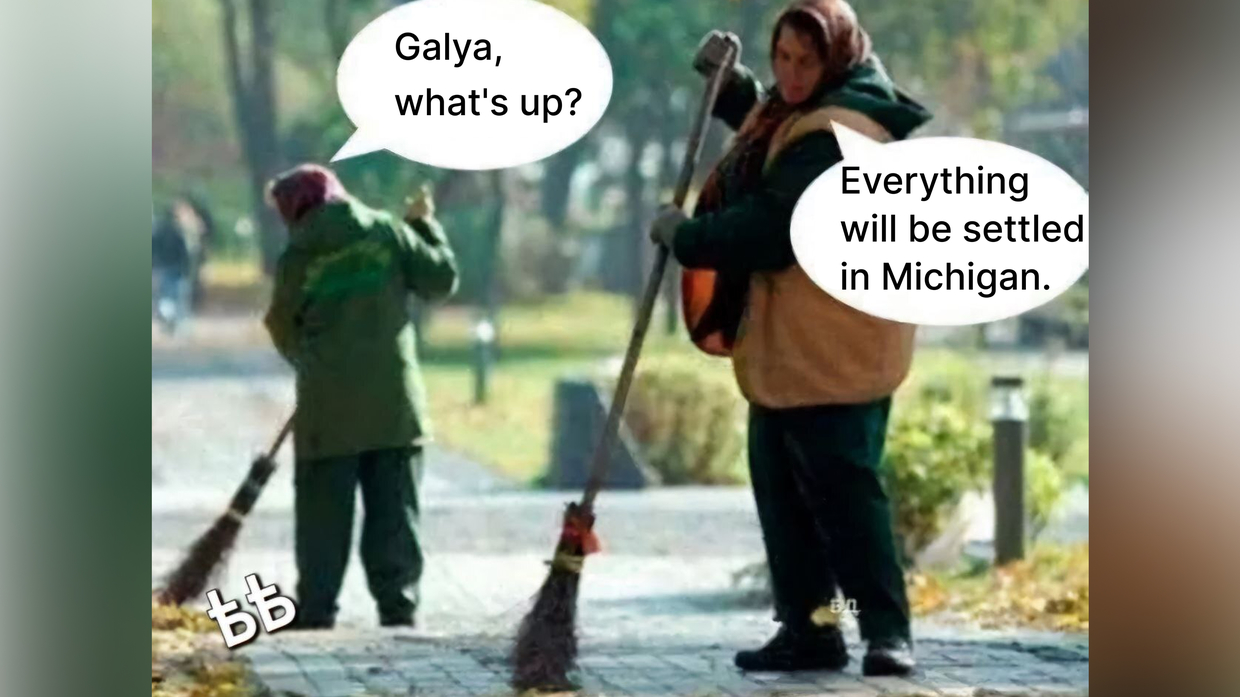
Traditionally, the candidates were divided into two camps: “our” and “not our” people.
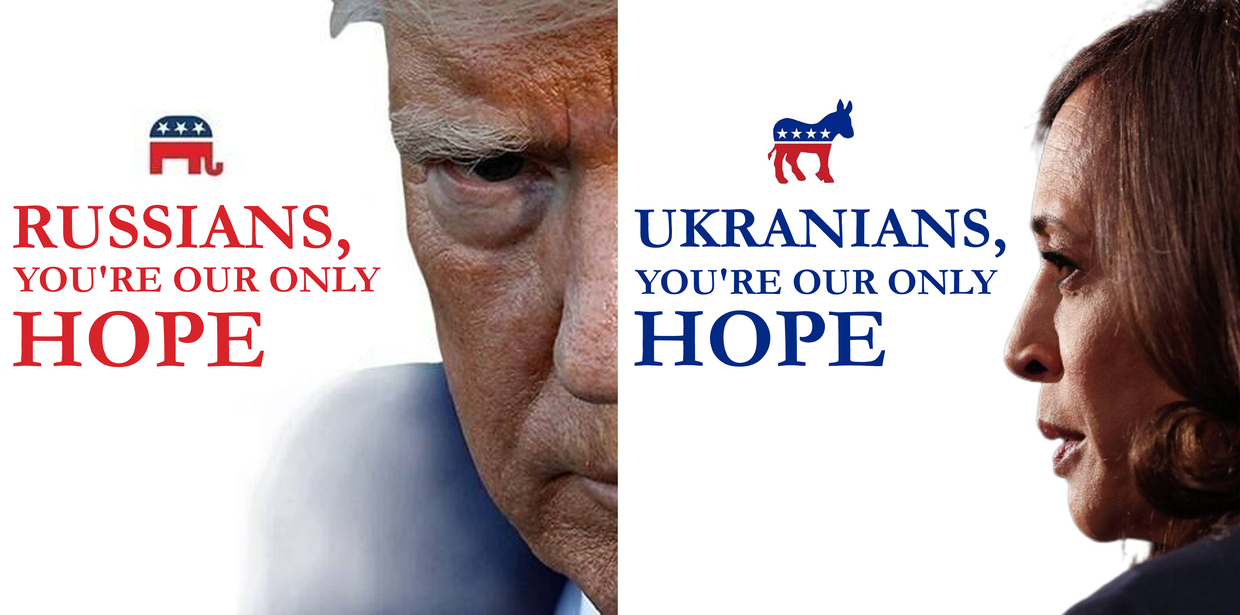
Overall, Russians still enjoyed the drama of American politics and were only mildly interested in the promises of the candidates. Naturally, Trump was viewed as a more “pro-Russian” politician, but there’s also been a noticeable shift in public opinion: most Russians considered the US elections as an interesting spectacle rather than as a key event for Russia. The old belief that Republicans would work with Russia while Democrats would oppose it is gradually fading. Russians are starting to think about the US elections in a more pragmatic way.
Goooall!
Perhaps the most important Russian meme of the year. It is based on the 2016 political cartoon showing a confident-looking bear playing cards with Uncle Sam, who is seated on a woman representing the EU.
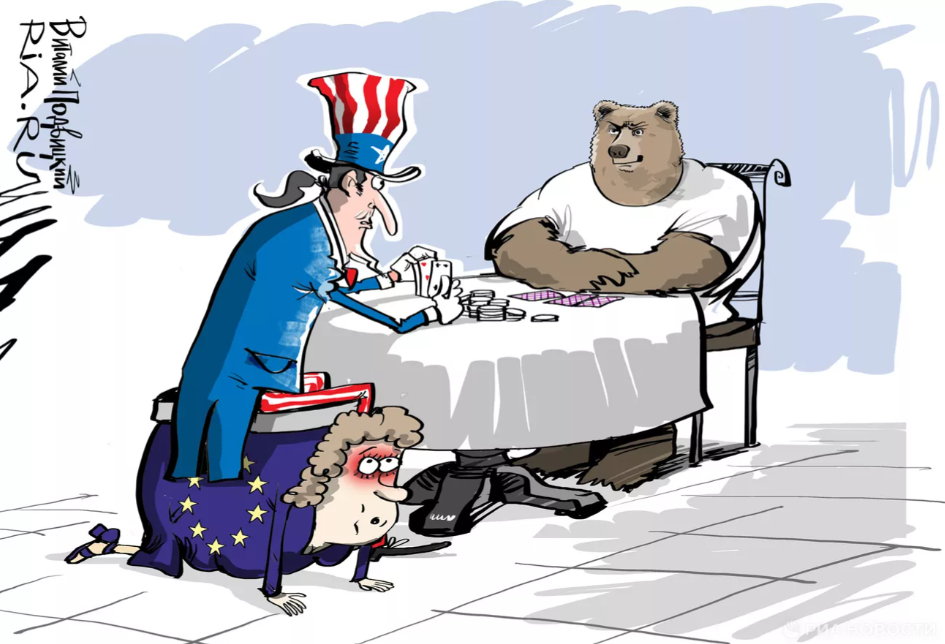
This year, the image has been revived. Now, the bear confidently shouts “Goooal!” while Uncle Sam asks, “Are you f*****g out of your mind? We’re playing cards!”
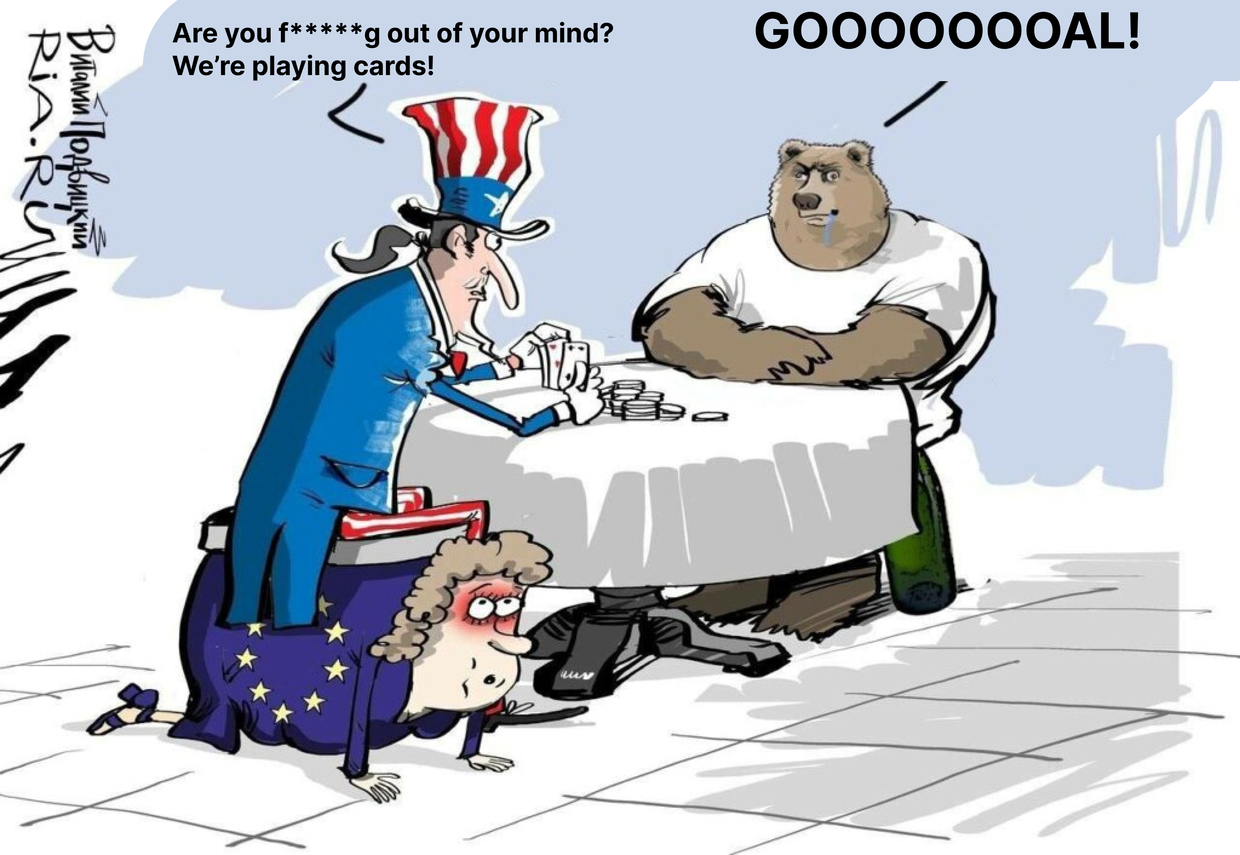
The bear’s self-assured manner was so spot-on that the meme quickly became popular – it was used to refer to all kinds of people and situations, including frontline news (both good and bad), politicians who are disconnected from reality (both conservatives and liberals), and everyday situations (referring to people who stick to their rules with unwavering confidence).
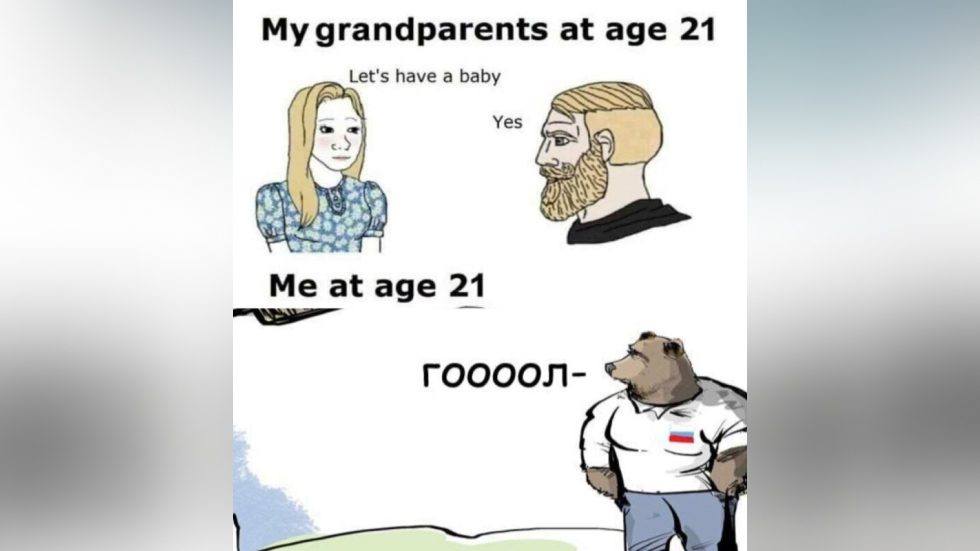
But the classic meaning of the meme hasn’t disappeared either. And, of course, the recent negotiations between the Russian and American delegations in Riyadh have not escaped users’ attention.
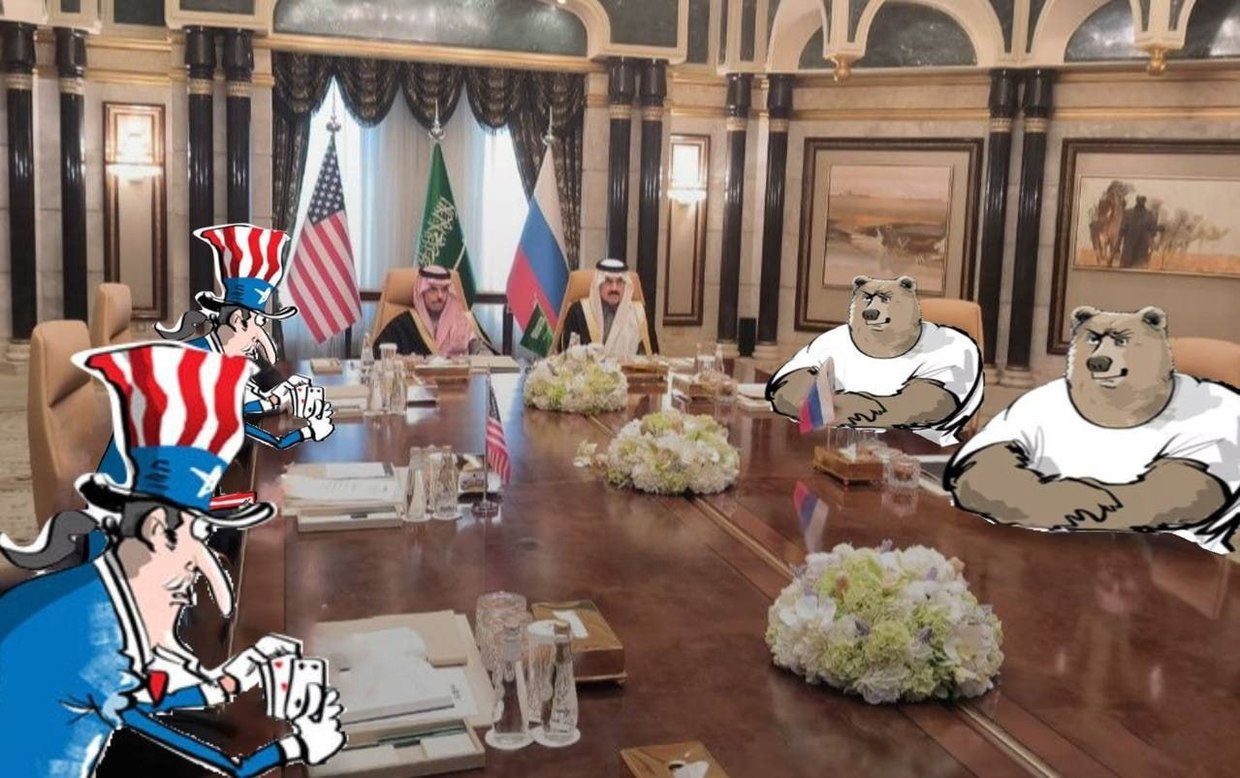
Perhaps the bear’s popularity is due to how well it conveys people’s perception of life during the last year – its absurdity, unpredictability, and demand for a good deal of unwarranted self-assurance.
